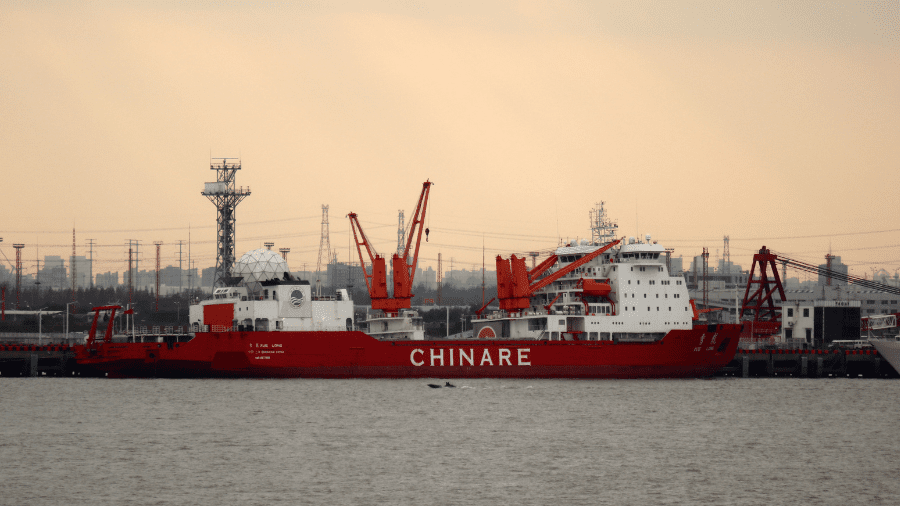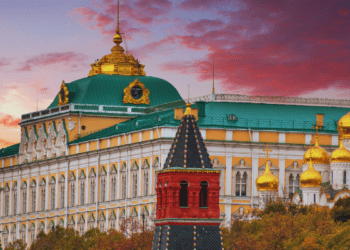This article originally appeared in the Globe and Mail.
By Rob Huebert, August 25, 2023
Ever since an icebreaker called Xue Long arrived in Tuktoyaktuk, NWT, in 1999, Canadians have been curious about China’s interest in the Canadian Arctic. While some observers view China’s presence in the region as benign, even benefiting Arctic science and research, recent Chinese actions and announcements are pointing to Beijing’s determination to have a military capability in the region that will exceed that of Canada.
China has already developed the ability to deploy underwater listening devices that can be used to track American and other allied submarines in the Arctic, and in about two years the country will have deep-diving submersibles that can be used in those waters. So, unlike Canada, they will be able to listen to what is happening under the ice cap and will have the ability to deploy assets there accordingly.
Earlier this year, there was major news-media coverage of a series of Chinese high-altitude balloons (HABs) that flew over North American airspace, as well as Chinese monitoring buoys that floated (or were deployed) into Canadian waters.
What has not received as much attention is a research paper, published in 2021, in which Chinese scientists explain their success in developing Arctic-resilient underwater listening systems. The paper says the listening systems are for peaceful purposes, but the actual ramifications of the HABs, buoys and research systems are inescapable. China is refining its means of monitoring the Canadian North.
This ability to monitor underwater activity is troubling for Canada. First, Canada itself has no such ability to monitor its own regions. Second, it means that any allied submarines in or near these waters can be closely tracked by the Chinese, which is a tremendous strategic benefit considering that a submarine’s main advantage in this situation is its ability to operate undetected. For years, American and British subs have worked carefully to utilize their ability to discreetly patrol Arctic waters. This advantage will soon end.
A second major announcement by China this summer is that it is building a third icebreaker. Expected to enter service in 2025, this one will be outfitted with deep-diving submersibles. This development would enable China to interfere with any underwater cables or pipelines if it chooses to do so, since these deep-diving submersibles could likely attach listening devices to communications cables, or simply cut them, without Canada having any knowledge of who has taken such action. Canada has no such deep-diving capability and has never indicated any interest in acquiring such assets.
As its rapid Arctic expansion continues, Beijing will soon be able to monitor and act in Arctic waters, especially below the surface, at a level far beyond what Canada can do or respond to. Tracking an icebreaker’s deep-sea submersibles will not be possible; Canada will have only a limited ability to monitor the mothership for these subs, for as long as it has the satellite capabilities to do so.
As a recent Auditor-General’s report makes clear, Canada may soon lose the capacity to use its own satellites to monitor even surface activities in the Arctic. The potential ramifications are worrisome: For example, the Chinese could copy Russian capabilities and place deep-diving submersibles on nuclear-powered submarines designed to operate in Arctic waters. While there is no public information that China has or is building an equivalent to the Russian Belgorod submarine, which can carry the Losharik deep-diving mini-submarine (which can pick up objects from the sea floor), it is logical to assume China will soon advance to such systems.
China will very soon enjoy a major advantage in monitoring Arctic waters, especially under the surface, and it will have confidence that Canada has little ability to see what is going on or do anything about it. Factor in the overwhelming evidence of Beijing’s efforts to target and interfere in our political system – and our reluctance or inability to respond to these actions – and the larger threat to Canada’s very sovereignty comes starkly into view.
Rob Huebert is a senior fellow at the Macdonald-Laurier Institute and associate professor of political science at the University of Calgary.






